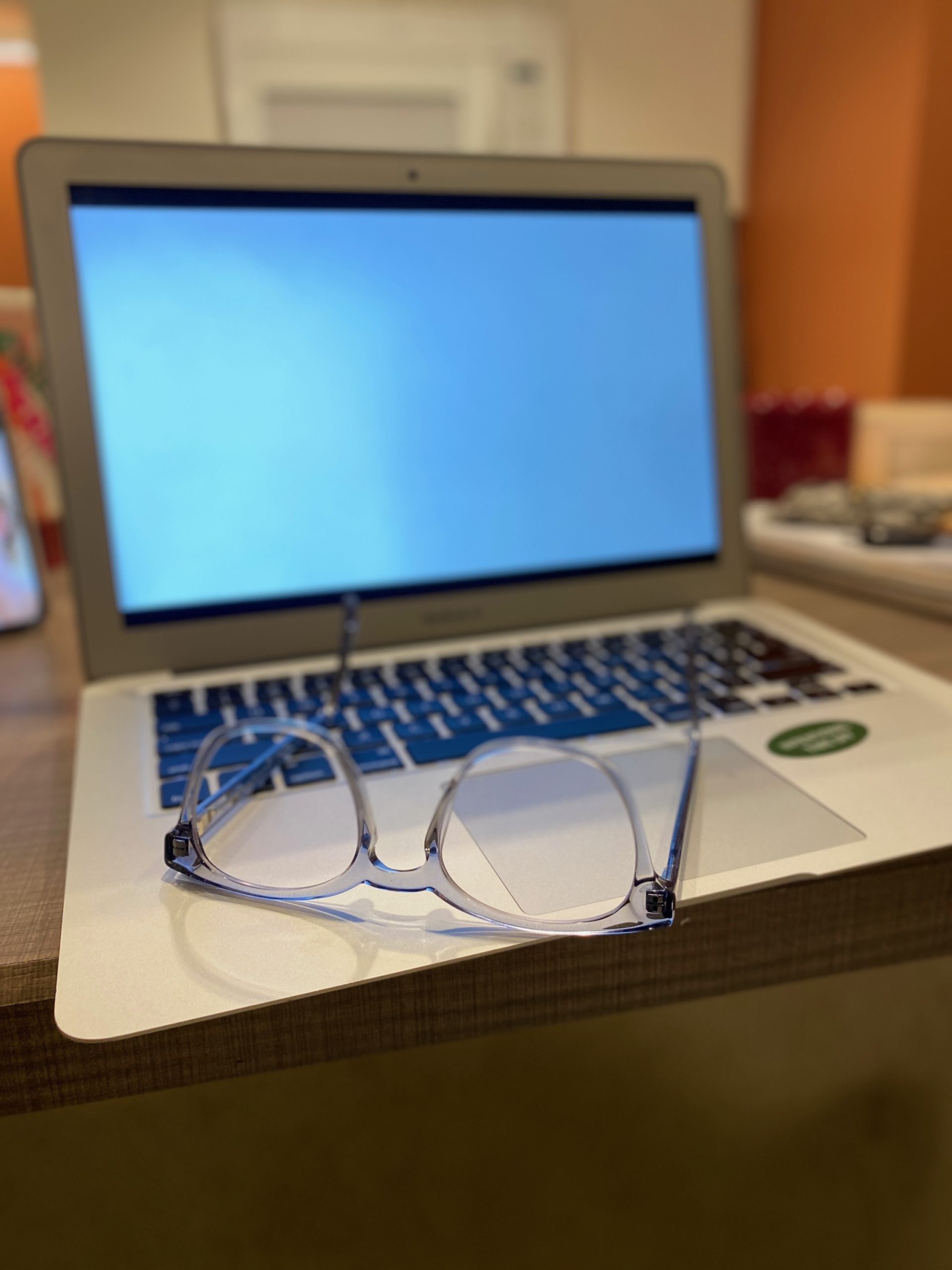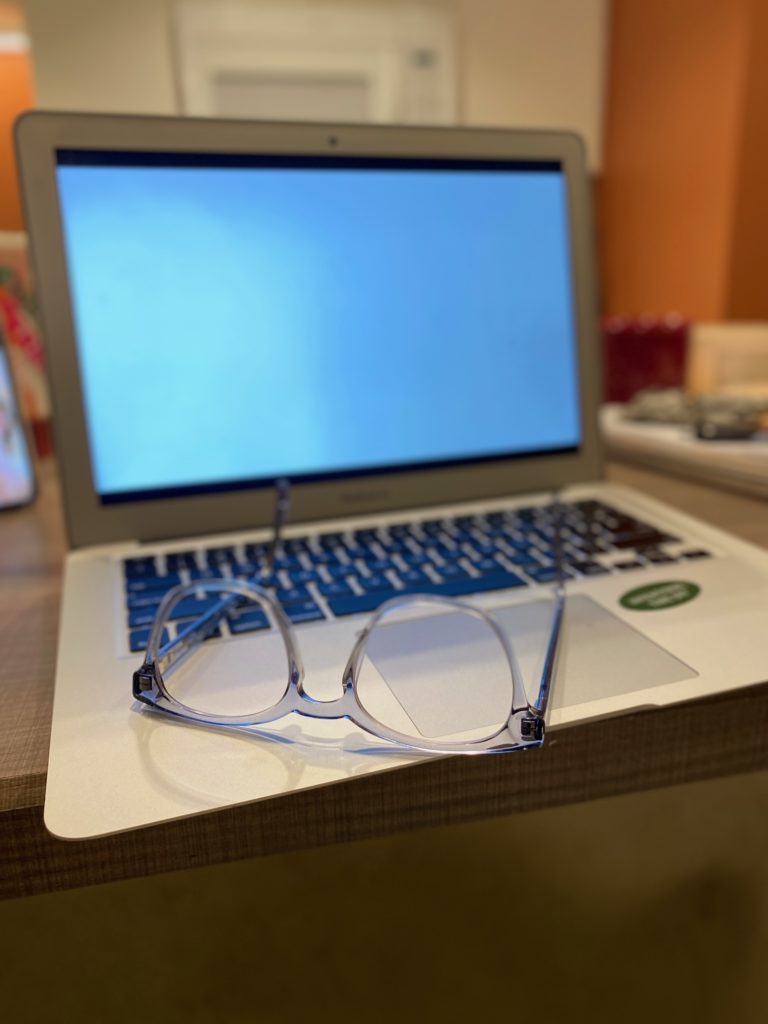
By Ethan Li
Staff Writer
We wear electronic devices like clothes–close to the body and constantly looking at them. Yet, spending more and more time on mobile phones and computers can hurt our eyes with blue light, one of the primary sources of electronic damage to our eyes. Blue light glasses, which are said to block harmful blue light from electronic screens, have become more popular as more aspects of our lives are online. But are blue light glasses as effective as advertised?
With the promotion of opticians, more and more people are choosing to buy nearsighted glasses with a blue light blocking layer, or professional blue light blocking glasses. “When I bought my glasses, they said they would block blue light, but my nearsightedness is getting worse,” said Ziang Zhang ’24.

Blue light refers to high-energy, short-wave light with a wavelength of 385nm ~ 505nm. (nm is nanometer;100 nm=0.000003937008 inch) In the visible range of human eyes, this light is blue when observed by human eyes, thus the name blue light. Blue light is divided into harmful and beneficial blue light. Harmful blue light can penetrate the eye directly to the retina and macula, causing irreversible damage to the eye, including nearsightedness. Our eyes are the most intolerant to blue light in the 400-440 nanometer band, so current manufacturers mainly block blue light in the production of anti-blue light glasses. But the blue light produced by the electronics we are exposed to now ranges from 450 nanometers to 490 nanometers, and thus the anti-blue glasses have little protection.
The science on blue light glasses is still uncertain. There have been individual studies that have reported that blue-blocking glasses can prevent or slow axial growth. “Other studies have shown that blue glasses do absolutely nothing to prevent myopia,” said Dr. Jully Sang, Attending physician of Zhongshan Ophthalmic Center, Sun Yat-sen University.
“The Academy does not recommend any special eyewear for computer use,” said Rahul Khurana, a clinical associate professor of ophthalmology at the University of California at San Francisco and a member of the American Academy of Ophthalmology.
And there might be some concerns because there are inconsistent standards for blue light glasses on the market. Using the wrong kind of blue light glasses may cause some color differences, which can increase vision loss or eye strain.
But still, Khurana said, you should pay attention to the health of your eyes, especially as blue light can cause visual fatigue to some extent for long-term computer users. The advice is that it is more important to pay attention to the rest of your eyes than to prevent blue light. “Since blue light wakes us up and stimulates us, too much blue-light exposure late at night from screens can disrupt our ability to fall asleep,” Khurana said.
“Maybe, with the blue light glasses, my sleep has gotten longer, but it hasn’t changed that much,”Ziang Zhang 24’ said.
As the pandemic spreads, more schools switch to online instruction, more professors are exposed to computers, and younger children need computers to study. If there is no connection between nearsightedness and blue light glasses, should children and the elderly wear blue light glasses?
“Clinically we do not recommend patients to wear blue glasses,” said Jully Sang. “I don’t think children and the elderly need to wear blue glasses. They need more rest.”

